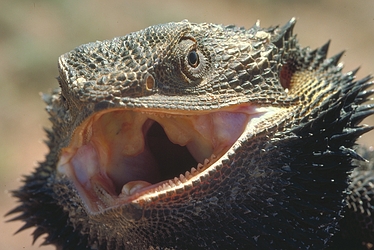CDC Bearded Dragon: A Beginner's Guide to Keeping Your Pet Safe and Healthy
CDC Bearded Dragon: What You Need to Know
Bearded dragons are popular pets among reptile enthusiasts. They are friendly, easy to care for, and make great companions. However, it’s important to note that they can carry diseases that can be transmitted to humans. The Centers for Disease Control and Prevention (CDC) has issued guidelines to help pet owners keep themselves and their families safe. This article will provide a beginner’s guide to CDC bearded dragon care and safety.
What is the CDC?
The CDC is a government agency that is responsible for protecting public health in the United States. They collect and analyze data on diseases, create guidelines for prevention and treatment, and respond to public health emergencies.
Why are Bearded Dragons a Concern?
Bearded dragons can carry Salmonella bacteria on their skin and in their feces. This bacteria can cause illness in humans, especially in young children, elderly individuals, and those with compromised immune systems. The CDC estimates that about 74,000 cases of Salmonella infection occur in the US each year, and reptiles are a common source of the bacteria.

How to Keep Yourself and Your Family Safe
Wash Your Hands
One of the easiest ways to prevent the spread of Salmonella bacteria is to wash your hands thoroughly with soap and water. This is especially important after handling your pet, cleaning their cage, or coming into contact with their feces.
Disinfect Surfaces
It’s important to clean and disinfect any surfaces that come into contact with your pet or their feces, including their cage, food dishes, and toys. Use a disinfectant that is effective against Salmonella bacteria, and follow the manufacturer’s instructions carefully.
Don’t Kiss Your Bearded Dragon
While it may be tempting to smooch your bearded dragon, it’s important to avoid kissing them or allowing them to lick your face. This can spread the bacteria to your mouth and face, increasing your risk of infection.
Keep Your Pet Healthy
One of the best ways to prevent the spread of disease is to keep your pet healthy. This means providing them with a clean and comfortable habitat, feeding them a balanced diet, and taking them to the veterinarian for regular check-ups.

Conclusion
While bearded dragons can make wonderful pets, it’s important to follow CDC guidelines to keep yourself and your family safe. Taking simple precautions like washing your hands and disinfecting surfaces can go a long way in preventing the spread of Salmonella bacteria. Remember to provide your pet with the proper care and attention they need to stay healthy and happy!
